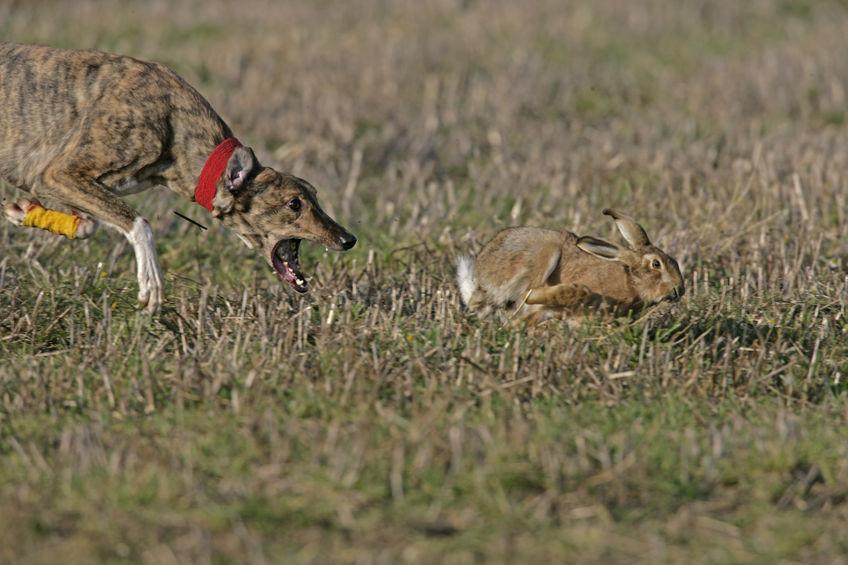
Farmers and landowners are urging the police to take hare coursing seriously as a rural crime and prioritise tackling offenders as the new season kicks off.
Hare coursing is a rural crime where dogs are used to chase, catch and kill hares, with gambling on the outcome common practice.
The crime becomes more prevalent following harvest when large areas of arable land are cleared of crops, making it easier to travel across fields.
The CLA, which represents landowners and farmers, has written to police and crime commissioners to urge them to help stop the “sinister tactics, threats and intimidation” used by hare coursers and arrest those caught in the act.
Hare coursing is a major concern for many, particularly in the East of England.
The crime has increased steadily in recent years. Cambridgeshire, one of the worst counties affected, reported nearly a 40% rise in reported incidents from 1184 cases in 2016 to 1634 in 2017.
It follows news that more than 300 incidents of hare coursing has been recorded in the space of one month in Lincolnshire, severely impacting local farmers and their livelihoods.
The rise in hare coursing has increased efforts to rid the countryside of it, as 31 police forces join farmers in stamping the practice out.
The police forces, representing over 90% of forces facing issues with hare coursing in England and Wales, and the Crown Prosecution Service (CPS) have joined the NFU to highlight the illegal activity.
'Hardened criminals'
CLA President and Cambridgeshire farmer, Tim Breitmeyer said that every year following harvest, farmers and landowners "brace themselves" for a rise in hare coursing.
"We appreciate that police have a range of significant pressures but we want to ensure that tackling hare coursing remains a priority," Mr Breitmeyer said.
“It is a misconception for people to think this is a minor crime in the countryside. Those involved in hare coursing are hardened criminals – often using threats, intimidation and in some cases violence, against anyone who questions or challenges their actions.
“These criminals don’t think twice about trespassing on land, damaging crops and property. Nor do they give any consideration to the welfare of the hares involved, or the poor dogs frequently abandoned after the chase.
Mr Breitmeyer added: “As the recent National Rural Crime Survey has shown, those who work or live in rural areas feel vulnerable to crime. It is little surprise that many feel isolated and the criminals who roam the countryside to go hare coursing only add to this feeling of unease.”
Sentencing guidelines
Within the letter, the CLA highlights its own work to deter hare coursing, which includes an action plan where it believes steps should be taken to tackle the crime.
This includes the introduction of specific sentencing guidelines for hare coursing, the National Wildlife Crime Unit to be given sufficient resources to be able to treat hare coursing as a priority and for the police to be able to reclaim kennelling costs of dogs from offenders.
The CLA recommends that any suspicious activity in the countryside should be reported to the police on 101, but people should not be reticent about calling 999 if they suspect a crime is actually taking place.
However, it highlights that any violent criminal should not be tackled directly by members of the public, and calls to the police to report incidents of coursing should be made from a discrete location.
